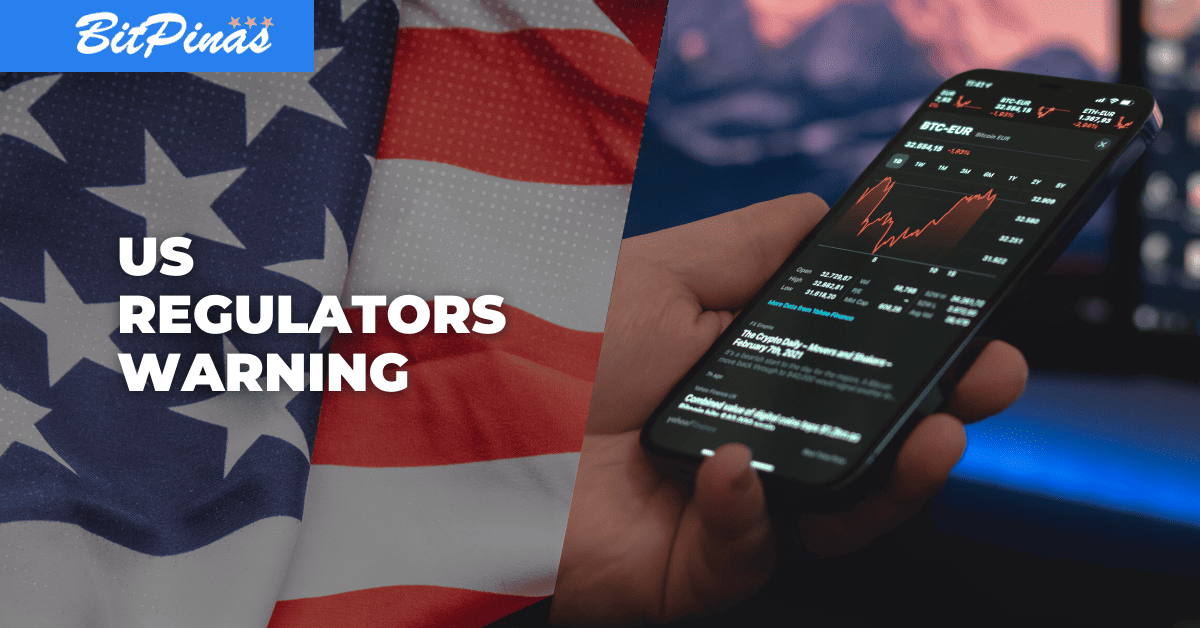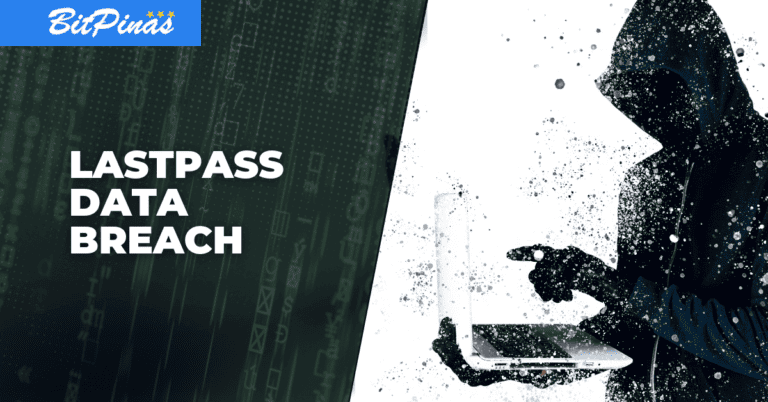US Regulators on Banks: Crypto Risks Should Not Be Integrated with Banking System
With this, the U.S. regulators promised to take a careful and cautious approach to crypto activities and exposure at banking organizations.

Subscribe to our newsletter!
Editing by Nathaniel Cajuday
- In a joint statement, the Federal Reserve, Federal Deposit Insurance Corp., and the Office of the Comptroller of the Currency reminded the banking sector of the United States to be mindful of the risks brought by the crypto-asset sector, where these “uncontrollable” risks should not be introduced to the banking system.
- Some of the reasons why these regulators have issued the joint system are the collapse of FTX, legal uncertainties of digital assets, inaccurate disclosures of crypto companies, the significant volatility in crypto-asset markets, and the contagion risk in the sector.
- With this, the U.S. regulators promised to take a careful and cautious approach to crypto activities and exposure at banking organizations.
Citing the collapse of the former crypto exchange giant FTX, the bank regulators in the United States issued a joint statement reminding the banking sector about the risks brought by cryptocurrencies, emphasizing that risks like this that cannot be controlled should not be integrated into the banking system.
In a statement, the Federal Reserve, Federal Deposit Insurance Corp., and the Office of the Comptroller of the Currency highlighted their concerns about these digital assets:
- Risk of fraud and scams among crypto-asset sector participants.
- Legal uncertainties related to custody practices, redemptions, and ownership rights, some of which are currently the subject of legal processes and proceedings.
- Inaccurate or misleading representations and disclosures by crypto-asset companies, including misrepresentations regarding federal deposit insurance, and other practices that may be unfair, deceptive, or abusive, contributing to significant harm to retail and institutional investors, customers, and counterparties.
- Significant volatility in crypto-asset markets, the effects of which include potential impacts on deposit flows associated with crypto-asset companies.
- Susceptibility of stablecoins to run a risk, creating potential deposit outflows for banking organizations that hold stablecoin reserves.
- Contagion risk within the crypto-asset sector resulting from interconnections among certain crypto-asset participants, including through opaque lending, investing, funding, service, and operational arrangements. These interconnections may also present concentration risks for banking organizations with exposures to the crypto-asset sector.
- Risk management and governance practices in the crypto-asset sector exhibit a lack of maturity and robustness.
- Heightened risks associated with open, public, and/or decentralized networks, or similar systems, including, but not limited to, the lack of governance mechanisms establishing oversight of the system; the absence of contracts or standards to clearly establish roles, responsibilities, and liabilities; and vulnerabilities related to cyber-attacks, outages, lost or trapped assets, and illicit finance.
“The events of the past year have been marked by significant volatility and the exposure of vulnerabilities in the crypto-asset sector,” the agencies said.
Recently, the founder and former CEO of FTX, Sam Bankman-Fried, pleaded not guilty through his lawyer on eight different counts of charges, including wire fraud and campaign finance violations following their collapse which left several investors losing their assets. However, two other executives from his previous crypto empire, Caroline Ellison, the former CEO of Alameda Research, and FTX co-founder Gary Wang, have pleaded guilty.
In the Philippines, the local regulators also took measures right after the FTX crash. The Bangko Sentral ng Pilipinas (BSP) asked locally licensed cryptocurrency exchanges about their exposure to the exchange. The central bank stated that this initiative was meant to closely monitor the situation and work to ensure that local exchanges have adequate protection against any potential losses.
Accordingly, the BSP issued another reminder addressing local exchanges about the importance of keeping virtual assets safe. They stressed that the firms must have enough reserves to cover the virtual assets they hold and to keep customer and company funds separate.
This article is published on BitPinas: US Regulators on Banks: Crypto Risks Should Not Be Integrated with Banking System
Disclaimer: BitPinas articles and its external content are not financial advice. The team serves to deliver independent, unbiased news to provide information for Philippine-crypto and beyond.
![[Event Recap] Southeast Asia Tech Week Sets Goal to Produce 100 Founder-Led Unicorns in PH 2 [Event Recap] Southeast Asia Tech Week Sets Goal to Produce 100 Founder-Led Unicorns in PH](https://bitpinas.com/wp-content/uploads/2023/04/seatech-1-768x402.png)



